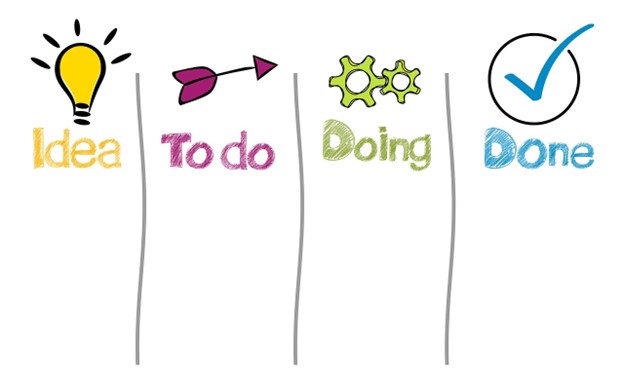
09 May Building A Culture of Trust: Key Steps For HR Professionals
The most expensive thing in the world is trust and it can take quite some time to earn it. Trust is what builds up value, power, and establishes a perfect culture at the workplace. If there’s no trust in the workplace, it’ll fail in the long term.
96% of engaged employees will trust their management, but 46% of disengaged employees don’t trust their management.
Therefore, building a culture of trust among your team is highly important. Let’s dive deeper into this article to learn more about the key steps HR professionals should follow.
The types of trust at the workplace
When at the workplace, there are different types of trust you can build and they are the following:
- Competence trust: Capability trust. Sees how well people carry out their responsibilities and value all the other people’s skills and abilities.
- Contractual trust: Character trust. Are the people at the workplace delivering their promises? Are the employees and managers being clear about what they want to deliver?
- Communication trust: Disclosure trust. How well are people sharing information and telling the truth?
9 ways to build a culture of trust
1. Encourage communication

Source
Trust is all built through open communication. No matter how much you communicate with your workforce, you need to know that there’s always room for improvement. Whether it’s a new employee or one that’s been around for some time, always share the company’s practices, benefits, policies, and more.
Whenever there’s a change or update in your policy, you need to inform your team. Always give employees as much advance notice as possible, so they don’t have room for any complaints and mistrust.
Moreover, it’s a way to secure your employees and keep them informed on all decisions you make.
2. Employee reward system
If you want to build trust in the long term with your employees, you need to build an employee reward system. Surveys claim that 47% of employees want to receive a reward. Receiving rewards builds trust, especially when the employee is doing a good job.
To make things even better, you can try to give your employees the ability to choose rewards that mean the most to them. Rewards not only build trust, but they incorporate the following:
- Rewards hard work: Shows employees the appreciation you have for their work by rewarding them with points or a gift of their personal preference.
- Celebrate all milestones: Every time you and your employees achieve something, give them something special like a promotion, work anniversary, or something more personalized.
- Encourage positive reactions: It only takes a few small gestures to make a difference. To have a better reward system, you can use employee rewards software. Not only does it reduce time consumption, but it’ll give you better ideas on what you can reward your team with.
3. Welcome all concerns your team might have
HR’s not something new to addressing concerns. If an employee takes time out of their daily routine to address an issue with you, you need to respect their concerns. Sometimes, these concerns might become problematic for you, but not addressing them will only distance you from your team.
Moreover, it’s always important to be there when your team needs you. This contributes to building a culture of trust. Doing so will allow employees to know they can depend on the office because after all, if you don’t listen, who else will?
4. Incorporate a rotating shift schedule

Source
Rotating schedules are excellent because they allow employees to understand how a business operates. Some employees may not appreciate the challenges that either morning or night shifts might offer them, but dealing with later shifts will have different tasks compared to those done in the morning.
When employees work through all of their shifts, they’ll have a more deep understanding of what the other teams need to do to make their jobs function properly. An efficient rotating shift schedule not only allows team members to have a deeper connection but to eliminate the entire feeling of having no real connection to other teams.
Some employees might not be happy to work with other time slots, especially with morning and night shifts. Moreover, not all employees have the same peak productivity hours, some are more productive in the morning and some at night.
5. Providing opportunities
Companies that offer employees equal opportunities are perceived as good employers. In order to build fairness in a workplace, the HR team should initially address the hiring process by ensuring they are bias-free.
Hiring candidates without bias sends out a powerful message to your team that you don’t allow discrimination in the workplace, making them feel much more comfortable with HR. HR needs to ensure that employees are paid equally and that their concerns are equally addressed.
In fact, there are many countries globally that are creating policies against discrimination in the workplace and even for supporting disabilities too. The UAE was the first one to introduce anti-discrimination policies and many other countries have followed along in the past recent years.
6. Manage expectations
When employees know what they can expect from the organization, their stress levels will be much lower. Establishing clear expectations is what will allow employees to maintain clear communication.
One easy way of doing this is by using project management software. A popular choice is usually Asana. Employees here can get a clear picture of all deadlines, timelines, and to-do lists.
Project management software can be useful for letting employees know how much they need to work. Avoid making your employees work more than they are promised. If there’s more work to do, let them know about it in advance.
In order to minimize stress at the workplace, create a backup plan if your employee doesn’t meet the deadlines. Let them know what to expect and they’ll be able to communicate with you much easier.
7. Be consistent

Source
Regardless of what it’s, consistency is the key to success in a business. All your team members must be on the same page in case of a policy update or practice.
You need to ensure that your HR team members know how to respond to your complaints, maintain compliance, and more. Whenever HR professionals provide different sets of answers, it not only shows a lack of consistency but may also look like they are promoting inequality.
8. Promote team collaboration
It’s easy to avoid communication altogether and not worry about team collaboration, but the long-term damage is what will affect your business. You can encourage team collaboration through group activities. This can be from an online video call to eating out and more. If you don’t encourage collaboration, it’ll only bring your team apart and that isn’t something you want.
9. Avoid micromanagement
Micromanaging is the enemy of building trust. You may ask why, but the truth is that micromanaging might seem like an annoying form of distracting employees. The best option of them all is to allow your employees to manage themselves, giving them the freedom of choice and teaching them how to do so.
Overall, you need to trust your employees to do a good job. Otherwise, you didn’t make the right hire.
10. Support your team

Source
Supporting your employees is an important thing to do if you want to build the right amount of trust. Employees need time off and even a good financial position to ensure they have the right work-life balance. If you offer employees important benefits such as paid health insurance, sick leaves, and you know you are entirely supporting their financial and psychological well-being.
The pandemic was a great example of employees getting burnt out because they were working remotely and having to take care of their kids at home and more.
Benefits of building a high-trust work culture
As business leaders, you need to consider building a culture of trust in your workplace and your teammates. You now know the steps to building a high-trust work culture, but what are the benefits you are receiving from them? Here are some of them to list:
- Employee retention: Trusting each other is important for the higher authorities. When trust is built, employee retention goes up and it’ll result in employees not wanting to leave the organization. Why so? It’s because you are making employees feel at home and they can easily address their concerns to you. Statistics show that employers who lack employee trust will also have a higher turnover rate of 57%.
- Employee engagement: Environments that trust each other will have higher engagement rates. You’d be surprised that 85% of employees are not engaged at the workplace and one of the most common reasons is due to lack of trust.
- Employee innovation: Team members will always feel better when their leaders support them in any innovative ideas they may have. Employees have to trust their manager and nobody is ever punished if they recommend something new.
- Employee productivity: Higher trust also means higher productivity. Take yourself as an example. If you were working for a company, would you be productive if you didn’t trust them?
The whole idea of a high-trust work culture
A high-trust culture is essential for HR professionals if they want to become successful in increasing productivity levels within a business. After all, if you don’t trust your colleagues at the workplace, it not only creates a negative environment but also increases turnover rates and will significantly lower productivity levels.
Therefore, it’s always important to trust who you work with because you’ll need it the most.
About The Author:
Tony Ademi is a freelance SEO content and copywriter. He has been in the writing industry for three years and has managed to write hundreds of SEO-optimized articles. Moreover, he has written articles that have ranked #1 on Google. Tony’s primary concern when writing an article is to do extensive research and ensure that the reader is engaged until the end.
No Comments